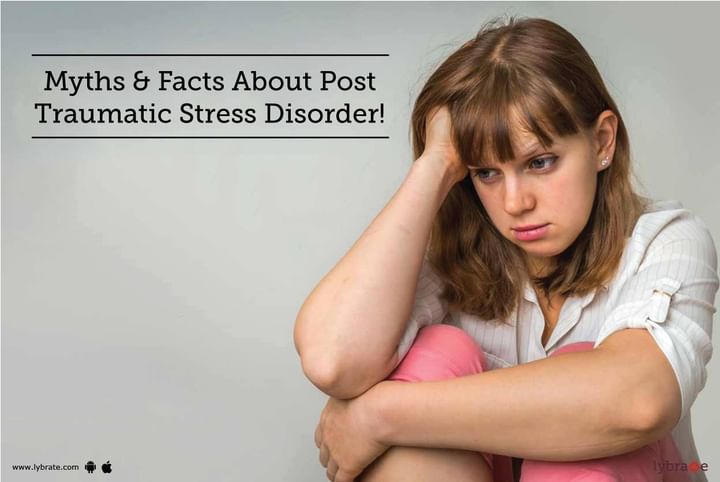Myths & Facts About Post Traumatic Stress Disorder!
Do you know that all the facts you know and have heard regarding post traumatic stress disorder are not true? Post traumatic stress disorder or PTSD is a mental health condition, which occurs because of a certain traumatic past event, witnessed or experienced by an affected patient. As there are several myths about this condition, it is important for you to get your facts right regarding PTSD.
Myth: Post traumatic stress disorder only affects war veterans.
Fact: Even though PTSD is common among war veterans, the condition is capable of affecting any person. It is expected that almost 70% people of the world gets exposed to some kind of traumatic event during their lifetime, and almost 20% of them end up with this mental condition. The victims of physical abuse and sexual harassment are very likely to develop PTSD. Women are more likely to experience this condition on the basis of traumatic experiences such as rape, beatings, and interpersonal violence.
Myth: People should be able to move on in life after facing a traumatic event. Those who cannot get over and cope are weak people.
Fact: Many people who experience a traumatic event of extreme intensity go through periods of adjustment after the situation. Most people become capable of getting back to normal life after some time of therapy and treatment. However, the stress which is caused due to the trauma gravely affects a person’s emotional, mental, and physical well-being. Prolonger trauma is capable of disrupting and altering a person’s brain chemistry. The views, perceptions, and thinking patterns of many people change after a traumatic event. This results in PTSD.
Myth: People develop PTSD right after experiencing a traumatic life event.
Fact: The symptoms of PTSD start developing within three months of experiencing an extremely traumatic situation, but they also might not show or appear before several months, or even years in some cases. The symptoms are likely to be experienced for several years after the traumatic event. In some cases, the symptoms may subside or leave, only to reoccur again at a later stage in life. This is common in the case of victims who have experienced extreme situations of child abuse in the past.
Many people do not recognize that they are suffering from PTSD. This is because they may not relate the current symptoms they experience with the past traumatic event. In cases of domestic violence, a victim may fail to realize that his or her prolonged abuse exposure is harmful.



+1.svg)
